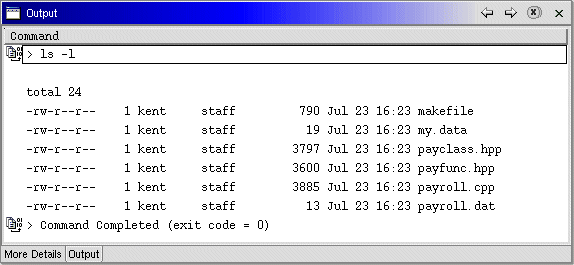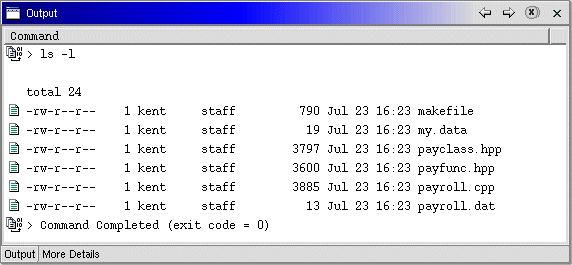Formats
In the following simple example, lines of output from a ls -l command are shown as both raw and parsed output.

If we add these two simple format instructions to <...>/eclipse/plugins/com.ibm.dstore.miners/patterns.dat:
command: ls.*
file file pattern=.*\d{2}:\d{2} ([\w,.]*)
each output line matching the pattern will have the  icon
prepended, and when we click on one of these lines, the corresponding file will be opened in the editor. When we run the command again we get:
icon
prepended, and when we click on one of these lines, the corresponding file will be opened in the editor. When we run the command again we get:

For details on how to create your own formats check out Creating Formats.